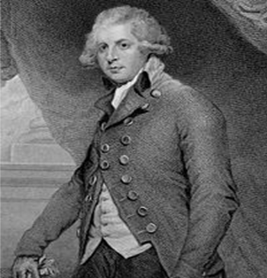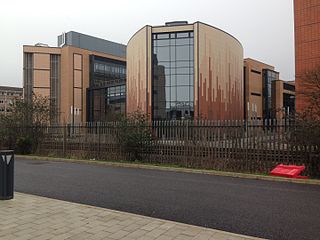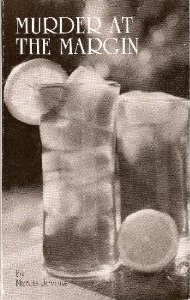
Neoclassical economics is an approach to economics in which the production, consumption, and valuation (pricing) of goods and services are observed as driven by the supply and demand model. According to this line of thought, the value of a good or service is determined through a hypothetical maximization of utility by income-constrained individuals and of profits by firms facing production costs and employing available information and factors of production. This approach has often been justified by appealing to rational choice theory.

Alfred Marshall was an English economist, and was one of the most influential economists of his time. His book Principles of Economics (1890) was the dominant economic textbook in England for many years. It brought the ideas of supply and demand, marginal utility, and costs of production into a coherent whole. He is known as one of the founders of neoclassical economics.

William Stanley Jevons was an English economist and logician.

Marginalism is a theory of economics that attempts to explain the discrepancy in the value of goods and services by reference to their secondary, or marginal, utility. It states that the reason why the price of diamonds is higher than that of water, for example, owes to the greater additional satisfaction of the diamonds over the water. Thus, while the water has greater total utility, the diamond has greater marginal utility.

Arsène Jules Étienne Juvenal Dupuit was a French civil engineer and economist.

Richard Cantillon was an Irish-French economist and author of Essai Sur La Nature Du Commerce En Général, a book considered by William Stanley Jevons to be the "cradle of political economy". Although little information exists on Cantillon's life, it is known that he became a successful banker and merchant at an early age. His success was largely derived from the political and business connections he made through his family and through an early employer, James Brydges. During the late 1710s and early 1720s, Cantillon speculated in, and later helped fund, John Law's Mississippi Company, from which he acquired great wealth. However, his success came at a cost to his debtors, who pursued him with lawsuits, criminal charges, and even murder plots until his death in 1734.

Francis Ysidro Edgeworth was an Anglo-Irish philosopher and political economist who made significant contributions to the methods of statistics during the 1880s. From 1891 onward, he was appointed the founding editor of The Economic Journal.

François Joseph Charles Simiand was a French sociologist and economist best known as a participant in the Année Sociologique. As a member of the French Historical School of economics, Simiand predicated a rigorous factual and statistical basis for theoretical models and policies. His contribution to French social science was recognized in 1931 when, at the age of 58, he was elected to the faculty of the Collège de France and accepted the chair in labor history.

In economics, the Jevons paradox occurs when technological progress increases the efficiency with which a resource is used, but the falling cost of use induces increases in demand enough that resource use is increased, rather than reduced. Governments, both historical and modern, typically expect that energy efficiency gains will lower energy consumption, rather than expecting the Jevons paradox.
Hermann Heinrich Gossen was a German economist who is often regarded as the first to elaborate, in detail, a general theory of marginal utility.
Marshall Jevons is a fictitious crime writer invented and used by William L. Breit and Kenneth G. Elzinga, professors of economics at Trinity University, San Antonio, and the University of Virginia, respectively.

The Fatal Equilibrium is a mystery novel published under the pen name Marshall Jevons but actually written by William L. Breit and Kenneth G. Elzinga, both of whom are professors of economics. The book introduces many examples of economics theory and has been used as supplementary reading in many introductory courses in economics.

The 2007 Philadelphia mayoral election was held on November 6, 2007 when Philadelphia, Pennsylvania, United States elected Michael Nutter as the Mayor of Philadelphia starting in 2008. The incumbent mayor, John F. Street was barred from seeking a third term because of term limits. The Democratic Party primary campaign saw two well-known, well-funded Philadelphia congressmen – Bob Brady and Chaka Fattah – eclipsed by self-funding businessman Tom Knox and reformist former Philadelphia City Council member Nutter, who won by a surprisingly large margin in the primary election on May 15. He went on to face Republican Party nominee Al Taubenberger in the general election, which he won by a large margin and with the lowest voter turnout in a Philadelphia mayoral election without an incumbent since 1951. Mayor Nutter was sworn in on January 7, 2008.
Kenneth G. Elzinga is the Robert C. Taylor Professor of Economics at the University of Virginia. He is an antitrust expert and co-authored a highly successful quartet of murder mystery novels in which the sleuth, dubbed Henry Spearman, solves the murder using principles of economics.

Cardiff Business School is the business school of Cardiff University in Cardiff, Wales. It was created in its current form in 1987 and opened by Elizabeth II. Cardiff Business School currently serves 3,000 students a year, 700 of whom are postgraduate students. The school's research programme is Economic and Social Research Council (ESRC) recognised and has 140 PhD students currently studying within the school. Its research informs organisations such as the Foreign and Commonwealth Office, the United Nations, HM Treasury, the Department for Business, Innovation and Skills and the Department for Communities and Local Government and working on consultation projects for blue-chip, global firms.
In mainstream economics, marginal utility describes the change in utility of one unit of a good or service. Marginal utility can be positive, negative, or zero. Negative marginal utility implies that every additional unit consumed of a commodity causes more harm than good, leading to a decrease in overall utility. In contrast, positive marginal utility indicates that every additional unit consumed increases overall utility.
William Breit (1933–2011) was an American economist, mystery novelist, and professional comedian. Breit was born in New Orleans. He received his undergraduate and master's degrees from the University of Texas and his Ph.D. from Michigan State University in 1961. He was an Assistant and associate professor of economics at Louisiana State University (1961–1965) On the recommendation of Milton Friedman he was interviewed and hired at the University of Virginia where he was Associate Professor and Professor of Economics (1965–1983). He returned to his San Antonio as the E.M. Stevens Distinguished Professor of Economics at Trinity University in 1983 and retired as the Vernon F. Taylor Distinguished Professor Emeritus in 2002. He is considered an expert in the history of economic thought and anti-trust economics. He established the Nobel Laureate Lecture Series at Trinity University and is most notable as a mystery novelist where their murder mysteries are solved by applying basic economic principles.

David Hutchison MacGregor was a Scottish economist and Drummond Professor of Political Economy at the University of Oxford and Fellow of All Souls, Oxford, from 1921 to 1945.
John Cunningham Wood is an Australian economist, author, and the chief executive officer of the University Division at Navitas, known as series editor of the "Critical Assessment of Leading Economists" series of Taylor & Francis.












